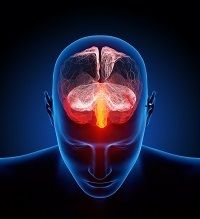Article
Sudden Unexpected Death in Epilepsy: New Funding, New Research
Author(s):
Sudden unexpected death in epilepsy (SUDEP) is a growing concern for patients and physicians. The National Institutes of Health's National Institute of Neurological Disorders and Stroke today announced it will fund a $5.9 million research project on SUDEP. The Center for SUDEP Research, a virtual "center without walls" will enable 9 groups of scientists to shared findings and data with a goal of fostering collaborations, the NIH said in announcing the program. The news was released in conjunction with several SUDEP studies presented today at the American Epilepsy Society's annual meeting in Seattle, WA.

Sudden unexpected death in epilepsy (SUDEP) is a growing concern for patients and physicians. The National Institutes of Health’s National Institute of Neurological Disorders and Stroke today announced it will fund a $5.9 million research project on SUDEP.
The Center for SUDEP Research, a virtual “center without walls” will enable 9 groups of scientists to shared findings and data with a goal of fostering collaborations, the NIH said in announcing the program.
The news was released in conjunction with several SUDEP studies presented today at the American Epilepsy Society’s annual meeting in Seattle, WA.
A University of Alabama-Birmington, GA team reported on a survey of the National Association of Medical Examiners. Respondents were asked how they would certify the immediate and underlying causes of death, contributing factors, and manner of death on death certificates. None of the hypothetical cases described the deceased as having been status epilepticus.
The results of the survey showed that ICD-10 codes were not capturing a significant number of SUDEP cases. “Lack of standardized terminology may obscure the presence of epilepsy in these deaths,” wrote lead author Daniel Atherton.
Tackling a different issue regarding SUDEP, researchers at McMaster University in Hamilton, Ontario decided to try to find out how much information epilepsy patients want to know about the phenomenon. Rajesh RamachandranNair and colleagues surveyed 23 adult epilepsy patients both in personal interviews and in a focus group setting.
Among the researchers’ findings, more than half of the respondents said they had no understanding of SUDEP. All preferred to get information from a physician but about 25% were concerned that knowing about SUDEP would just cause emotional stress and worry.
Whether to talk about the risk of SUDEP with pediatric epilepsy patients and their families is yet another difficult issue, according to a third study presented at the meeting.
Researchers at the Children’s National Medical Center in Washington, DC queried 22 pediatric neurologists to see how they addressed the topic.
They found “within a single institution there can be a wide spectrum of experience and practice concerning SUDEP and potential barriers of knowledge and practice can limit patient-provider discussions,” James Reese and colleagues wrote in an abstract presented at the meeting.
Only 4 respondents said they discussed SUDEP with the majority of their patients, while 10 of the respondents reported talking about it with fewer than 10% of their patients.
The reasons these neurologists gave for not having that conversation included the belief that since SUDEP is rare, the negative factors of telling patients and families about the risk outweighed any possible benefit.




